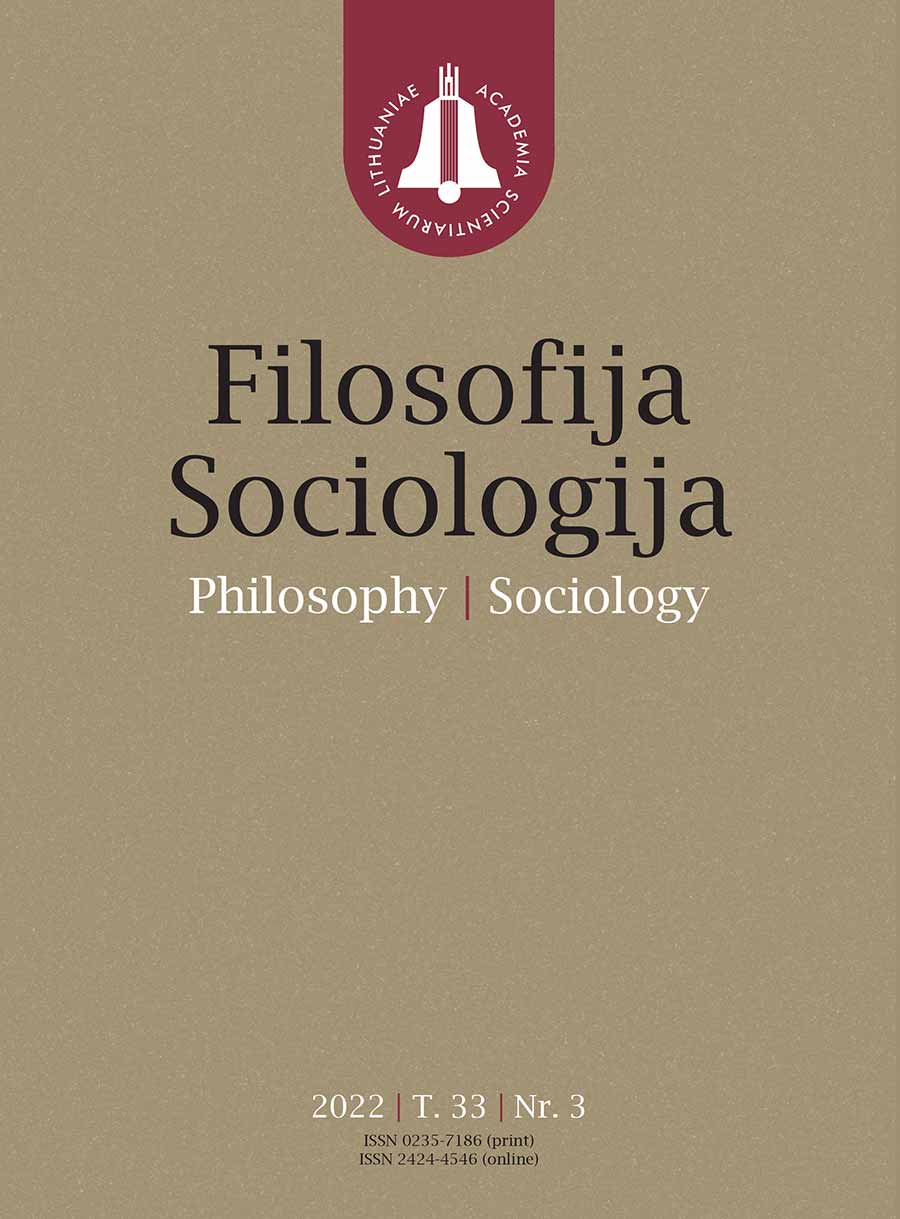Social Simulation as a Prognostic Tool for Communication Processes: Theoretical and Philosophical Perspectives
Social Simulation as a Prognostic Tool for Communication Processes: Theoretical and Philosophical Perspectives
Author(s): Jovilė Kotryna Barevičiūtė, Vaida AsakavičiūtėSubject(s): Epistemology, Social Philosophy, Social Theory, Ontology
Published by: Lietuvos mokslų akademijos leidykla
Keywords: communication processes; epistemological simulation; episteme; Jean Baudrillard; ontological simulation; ontos, prognostic measures; social environments; social simulation;
Summary/Abstract: The article presents social simulation from theoretical and philosophical perspectives as a prognostic tool for researching, analysing and anticipating communication and other processes in social environments. The first part discusses the phenomena of ontological and epistemological simulation, treating social simulation processes as epistemological ones. The second part analyses the attitude of the French sociologist and media philosopher Jean Baudrillard towards social simulation, which he himself treats as ontological one. The counterarguments to introduce Baudrillard’s unidentified distinction between ontological and epistemological simulation processes are presented. The third part deals with the principles of the functioning of social simulations as a prognostic tool and provides analytical possibilities for various social environments, communication and other processes. At the end of the article, it is concluded that Baudrillard’s concept of ontological simulation, which annihilates classical Western metaphysics, erroneously reduces the difference between ontos and epistēmē.
Journal: Filosofija. Sociologija
- Issue Year: 33/2022
- Issue No: 3
- Page Range: 235-244
- Page Count: 10
- Language: English

